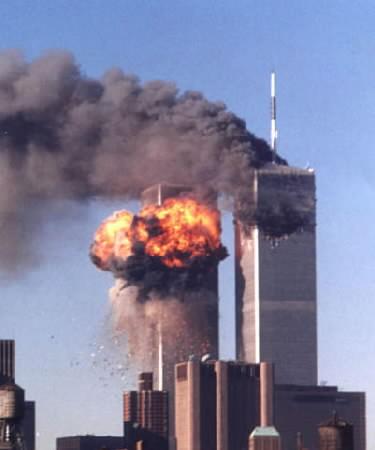With the 10th anniversary of 9/11 approaching, I found myself reading a lot of material that provided historical context for the tragedy, which I always thought was largely overlooked or usually glossed over. One of the more intriguing books I encountered, Susan Faludi’s The Terror Dream published in 2007, included a passage that I thought was remarkably compelling in forcing readers to look at the complex events that morning in a far different and more uncomfortable fashion than you are likely to experience over the next couple of months.
When 9/11 took place, I took an unusual turn in responding to the horrific event: rather than reading as much as I could get my hands on, I kind of turned away and steered clear of the avalanche that followed. As a longtime New Yorker who used to delight in prowling the streets of Manhattan when I was a teenager, I simply could not comprehend what the morning of 9/11 must have been like for the hardy souls on the lower half of the island. I don’t think it was the 10th anniversary that made me get the Faludi book from the local library, since I try to avoid adhering to the big-business convention of slavishly traipsing along with every commercial opportunity provided by every passage of five, ten, twenty, etc. year intervals. Since her book deals more with the ensuing 10 years and the even wider historical context of several hundred years before it, I guess I was intrigued by the bigger-picture approach.
In any event, I was quite promptly floored by one of the assertions in the book, certainly one of the most important ones, since it underpins much of the broader thesis. Talking about the immediate post-9/11 aftermath, Faludi alluded to an over-the-top remark by then-Mayor Rudy Giuliani in which he opined that New York City firefighters had “helped save” 25,000 people that day, marking the event as one of the most extraordinary moments in recorded history in that regard. It matters not that the same laudable designation could have been applied had Hizzoner picked a more rational number that represented even a fraction of 25,000; Faludi’s conclusion did nothing less than startle me.
Noting that 343 New York City firefighters had perished that day, Faludi wrote that “of the 16,000 to 18,000 who worked at the World Trade Center, 95 percent of those who died were on the upper floors beyond the reach of rescuers, and that most of those below rescued themselves without uniformed help. The grim truth,” she continued, “is that the human toll of 9/11 would have been significantly lower had the firefighters never entered the building,” citing figures that three times as many firefighters as office workers died on the floors below the impact of the planes.
I am well aware that I may be revealing my naivete on this topic, but I was stunned at the implications of the assertion and similarly amazed that I hadn’t heard more about it, which I concede could say more about me than it does about the assertion. Hell, maybe it’s even to the point of being conventional wisdom; if that’s the case, I just missed it completely.
But the assertion so dramatically flies in the face of the prevailing 9/11 narrative that I am amazed that I hadn’t heard more about it. Putting in this blog is hopefully one way of finding out just how culpable I am in all of this. Susan Faludi is a Pulitzer Prize-winning journalist, author and feminist, so I doubt the assertion was overlooked.
I have a great friend and an amazing artist, Andy Jurinko, who lives in lower Manhattan and was one of those displaced by the carnage of 9/11, but even having heard his story about three inches of ash covering his artwork in his studio apartment, I still insist that the only people who have any real conception of what happened that awful morning are those with a genuinely intimate connection to the moment and the site. I’ve been by the grounds of the “new” facility that is growing each day, but as I looked at it I still can’t seem to comprehend that the giant towers that once were there had somehow been reduced to a lung-clogging mist.
I know in the coming weeks we are probably going to get our fill of 9/11 all over again, and I suppose I will likely take the same tawdry path of turning away from much of it. But at the very least, I hope that our refocusing on that tragic day causes us to take a long, hard look at assertions like Faludi’s about what really happened that morning. We didn’t seem to learn much as a nation from the 1993 bombing at that site; it would be a greater shame if we didn’t come away from 9/11 with a clear, unvarnished understanding of one of the most devastating days in American history.
- T.S. O’Connell
